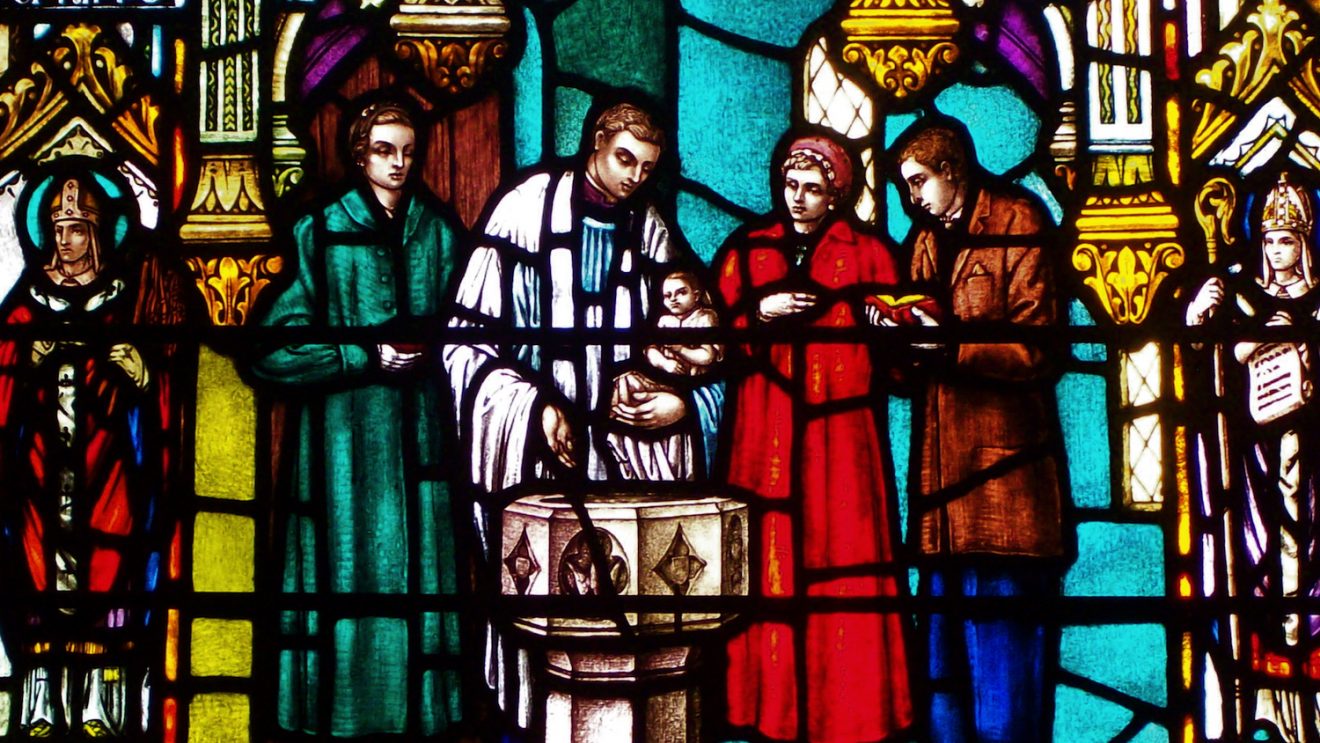 A woman named Ann talked her friend Betty into accompanying her to a garage sale. Ann was sorting through a tray of trinkets and various other items when Betty asked her, “Any luck?” “No,” Ann said, “it’s just a pile of junk; see for yourself.” Betty took a look, picked up a tarnished old crucifix, and exclaimed, “I can’t believe it! I’ve found a treasure—this cross is made of antique silver.” After Ann congratulated her—perhaps with a little bit of envy—Betty purchased the cross, took it home, and carefully polished it, restoring it to its original beauty. Afterwards Betty’s seven-year-old son Bobby picked up the crucifix with reverence and looked at it a long time; then he suddenly began to cry. “What’s wrong?” Betty asked, and Bobby answered, “I can’t help it. I was looking at Jesus on the cross.”
A woman named Ann talked her friend Betty into accompanying her to a garage sale. Ann was sorting through a tray of trinkets and various other items when Betty asked her, “Any luck?” “No,” Ann said, “it’s just a pile of junk; see for yourself.” Betty took a look, picked up a tarnished old crucifix, and exclaimed, “I can’t believe it! I’ve found a treasure—this cross is made of antique silver.” After Ann congratulated her—perhaps with a little bit of envy—Betty purchased the cross, took it home, and carefully polished it, restoring it to its original beauty. Afterwards Betty’s seven-year-old son Bobby picked up the crucifix with reverence and looked at it a long time; then he suddenly began to cry. “What’s wrong?” Betty asked, and Bobby answered, “I can’t help it. I was looking at Jesus on the cross.”
Three people looked at the same crucifix. One saw a piece of junk; the second saw an antique treasure; the third saw Jesus. This dynamic also applies to our human response to the Church’s preaching of the Good News of salvation. Some people hear the Gospel, but ignore it; they have no room for religion in their lives. Other people hear it and recognize it as something potentially useful and interesting; they make room for Christ in their lives, but He’s not at the very center. Finally, there are those who truly allow the Gospel to change their lives; they respond to Jesus wholeheartedly, and let their encounter with Him make all the difference (Link, Illustrated Sunday Homilies, Year A, p. 47). If we want to take seriously the grace of our baptism, and live it out each day, it’s obvious which approach is the correct one.
When someone is about to undertake an important role of ministry or service, it’s quite common to have a formal acknowledgment or commissioning service. The dictionary defines commissioning as “the act of committing,” or “something entrusted to be done.” This is what Jesus experienced when He was baptized by His cousin John the Baptist: He formally and wholeheartedly accepted His heavenly mission, and this commitment on His part was acknowledged by the words of God the Father and the visible presence of the Holy Spirit. The beginning of Our Lord’s public ministry had been foretold centuries earlier in the Book of the Prophet Isaiah (Is 42:1-4, 6-7); the passage quotes God the Father as saying, “Here is My servant Whom I uphold, My chosen one with Whom I am well pleased, upon Whom I have put My Spirit. . . .” In the Reading from the Acts of the Apostles (Acts 10:34-38), St. Peter describes the ministry of Jesus, saying that after He was baptized by John, “He went about doing good and healing all those oppressed by the devil, for God was with Him.” As the example of Jesus shows, one of the effects or results of baptism is that God is indeed with us, calling and empowering us to serve others in His Name.
As a boy, St. Francis de Sales would sometimes lead his friends and companions inside the parish church and take them to the baptismal font, where all of them had been baptized as infants. “See,” he would say, “this is the spot that should be dearer to us than any other, for it was here we were made children of God.” Then, before they all went off to play, the future saint would lead them in praying the Glory Be in thanksgiving for this great gift, and in bending down to kiss the font while on their knees (Howe, Stories from the Catechist, p. 307). We’re not necessarily expected to go to the church where we were baptized and there kiss the baptismal font, but we are expected to take the grace of our baptism seriously, allowing it to change our lives and bring us closer to Jesus. After all, the Lord once said that more will be expected of those to whom more is given, and so we as baptized Catholics will be held to a higher standard on Judgment Day than those who were never baptized.
Do we attend Mass each week, and try to pray every day? Are we truly sorry for our sins, and do we genuinely forgive those who sin against us? Do we regularly practice some sort of penance in reparation for our sins, and for the conversion of others? Do we treat everyone—especially persons we dislike—with kindness and respect? Are we continuing to learn more about our faith? Do we practice our faith in public, and try to defend the Church when it’s unfairly criticized or attacked? Do we serve others in Christ’s Name, help those around us who are suffering, and usually step forward when asked to volunteer for a worthwhile cause? Do we financially support our parish, and contribute to charity on a regular basis? Are we willing to share our Catholic faith with others when the opportunity arises?
Baptism is our commissioning, and our commitment, to try to do all these things; it’s something God takes very seriously—and so must we. Some people look upon religion in general and Catholicism in particular as a waste of time; others see it as something useful and valuable, but only because it gives them a chance to look good and fit into the community. We’re called to a much deeper understanding and experience. The grace of baptism means that our membership in the Church must be an encounter with Christ—not only here at Mass each weekend, but also in the world around us during daily life. Jesus answered His call, and He stands ready to help us do the same—but the desire and the decision must be ours.








